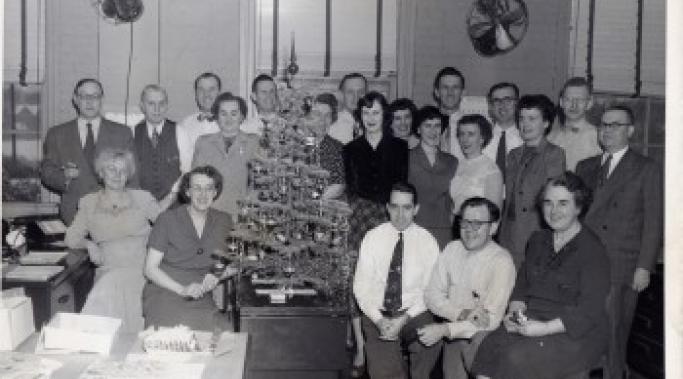In addiction recovery you have to focus on staying sober even during a tragedy. The weekend's news about the tragedy in Orlando has left many of us feeling sad, angry, shocked or even defeated. As an alcoholic in recovery, I have to carefully work on staying sober during any tragedy.
Sobriety Musings
Improving sobriety by healing resentments is the ultimate goal of revisiting painful memories. When we have successfully navigated our memories and emotions, we have the opportunity to let them go so that they no longer harm us. In order for old resentments to no longer hold power over us, we have to choose to forgive ourselves and the other person. You can heal resentments to improve your sobriety.
The winter blues are here and for those of us in all types of recovery, they can be especially tough (Stop Letting Winter Depression Freeze Your Happiness). If you're a recovering addict or alcoholic with the winter blues setting in, you are not alone.
Learning how to revisit painful memories can improve your sobriety by cleaning up negative emotions that no longer serve you. Recalling old wounds may seem scary, traumatizing, and unnecessary to some, but my experience has been overwhelmingly positive. While difficult and unpleasant at the time, the discomfort was outweighed by the relief I felt afterward (Unwanted Trauma Memories - How Do You Get Rid Of Them?). It's important to take certain steps during this process to ensure it has a positive outcome. Here are some tips on how to process painful memories to improve your sobriety in 2016.
New Year's Eve brings lots of unsafe alcohol consumption but you need safety on New Year's Eve. Whether you're sober or not, you should make plans to stay safe this New Year's holiday. Here are some ways to ensure alcohol safety on New Year's Eve.
Love it or hate it, the holiday season always brings obligations and you have to handle holiday obligations in alcohol recovery. It can be tricky to navigate those obligations. For me, feeling overwhelmed is just as a big an alcoholism trigger as alcohol itself so I have to be careful in my alcohol recovery with regards to holiday obligations..
An alcoholic self-sabotages when she tries to evade negative feelings and consequently creates more problems in her life (Ways to Avoid Negative Coping Skills). Alcoholics commonly self-sabotage their relationships, sobriety, and career as they try to avoid feelings they often buried with alcohol. Most of the time, they are not even conscious that they are sabotaging themselves, unless it is pointed out to them. For this reason, it's important for alcoholics and their support network alike to understand why incidents of an alcoholic's self-sabotage most often occurs around a sobriety milestone or a significant life change.
Courage and confidence are emboldened by alcohol because it lowers inhibitions, thereby reducing the sense of fear--but you can find courage and confidence without alcohol. A common misconception is that courage is the absence of fear. However, courage is actually defined by taking action in spite of your fears. When regaining control of your life in early sobriety, developing courage and confidence is difficult if you have always relied on alcohol. For anyone adjusting to sobriety, here are a few suggestions to find courage and confidence without alcohol.
Difficulty sleeping relates to alcohol use and withdrawal. Alcohol is actually not a good sleep aid, contrary to popular belief. Sure, it helps you fall asleep more quickly, but can lead to a host of other sleep disorders, such as sleep apnea and sleep walking; plus, when used frequently, drinking alcohol can lead to alcohol dependence.1
In alcoholics, the effects on sleep of alcohol, or alcohol withdrawal, are much more pronounced. Here are some explanations and advice for what you can do in early sobriety to sleep more soundly.
I have learned lessons from the deaths of recovering addicts. I have found grief around death to be especially difficult when the loss is of another recovering addict. I think this is because of the understanding, compassion, and support that is shared between recovering alcoholics and addicts. In my experience, these friendships seem to be the most profound and deeply rooted -- more so than any other relationships.
Long after the shock and hurt have subsided, I am left to sift through my memories of the recovering addict to try and find meaning in the trauma of their death. Here are three things I have learned from watching recovering addicts and alcoholics die.









